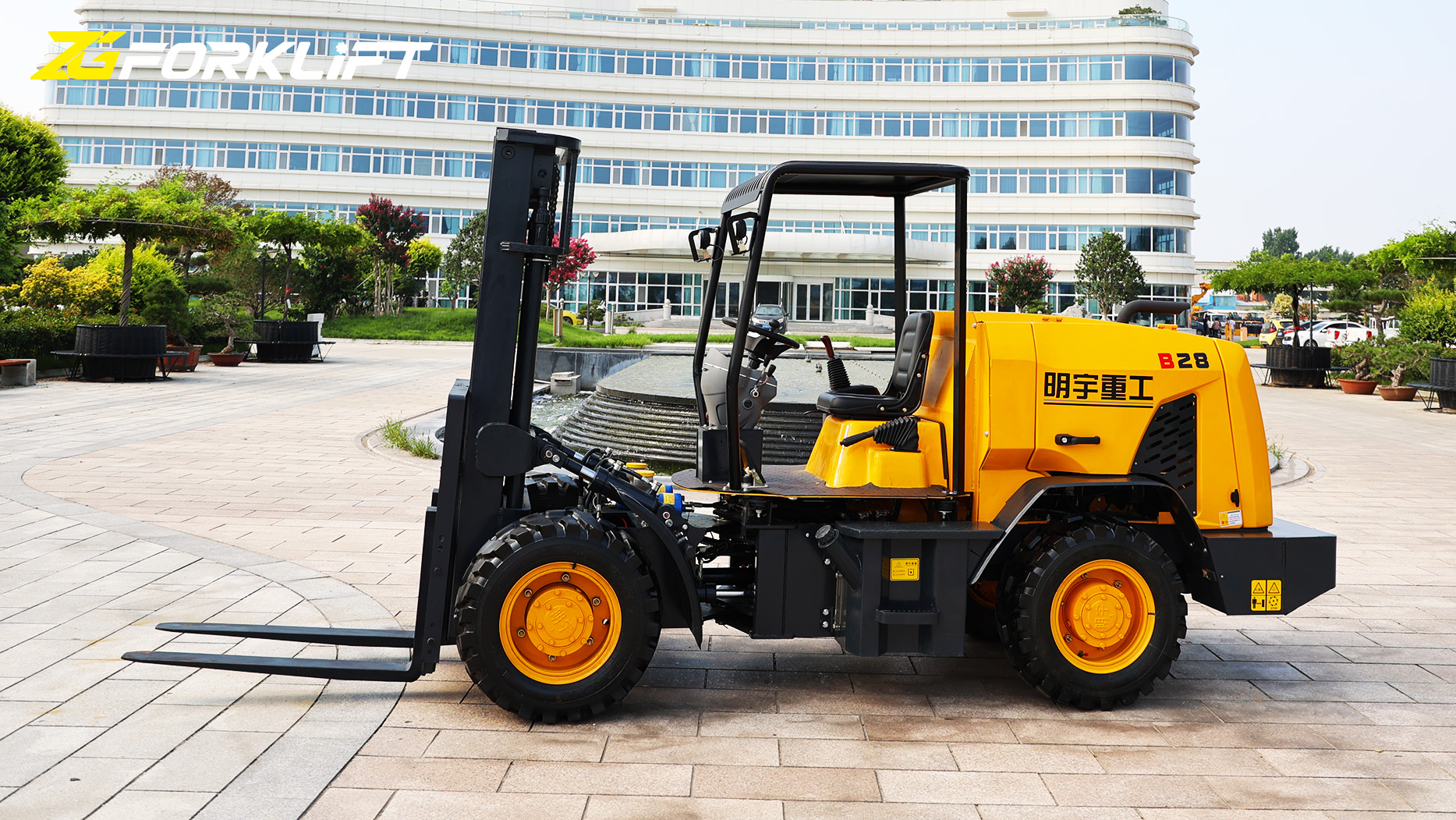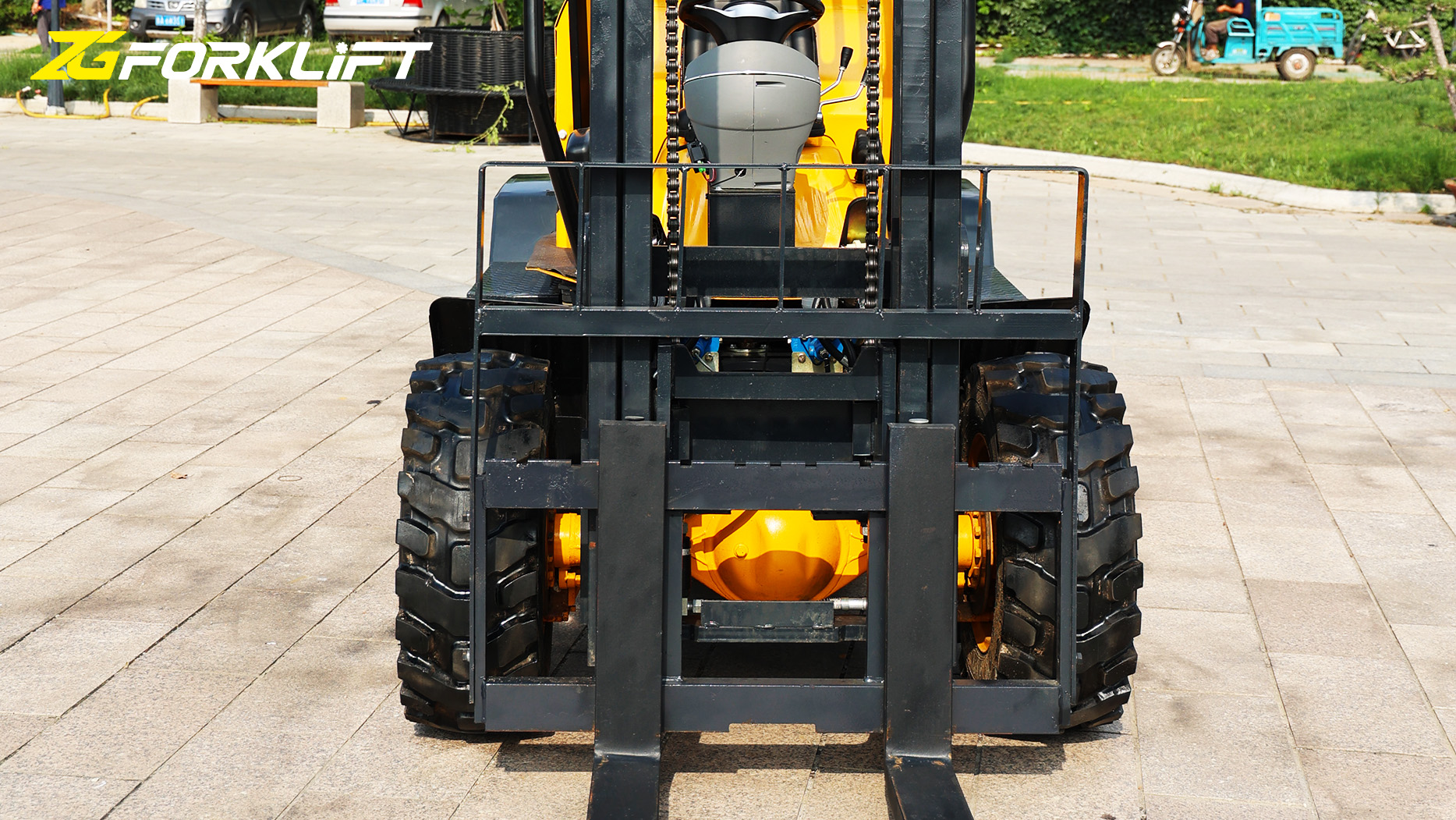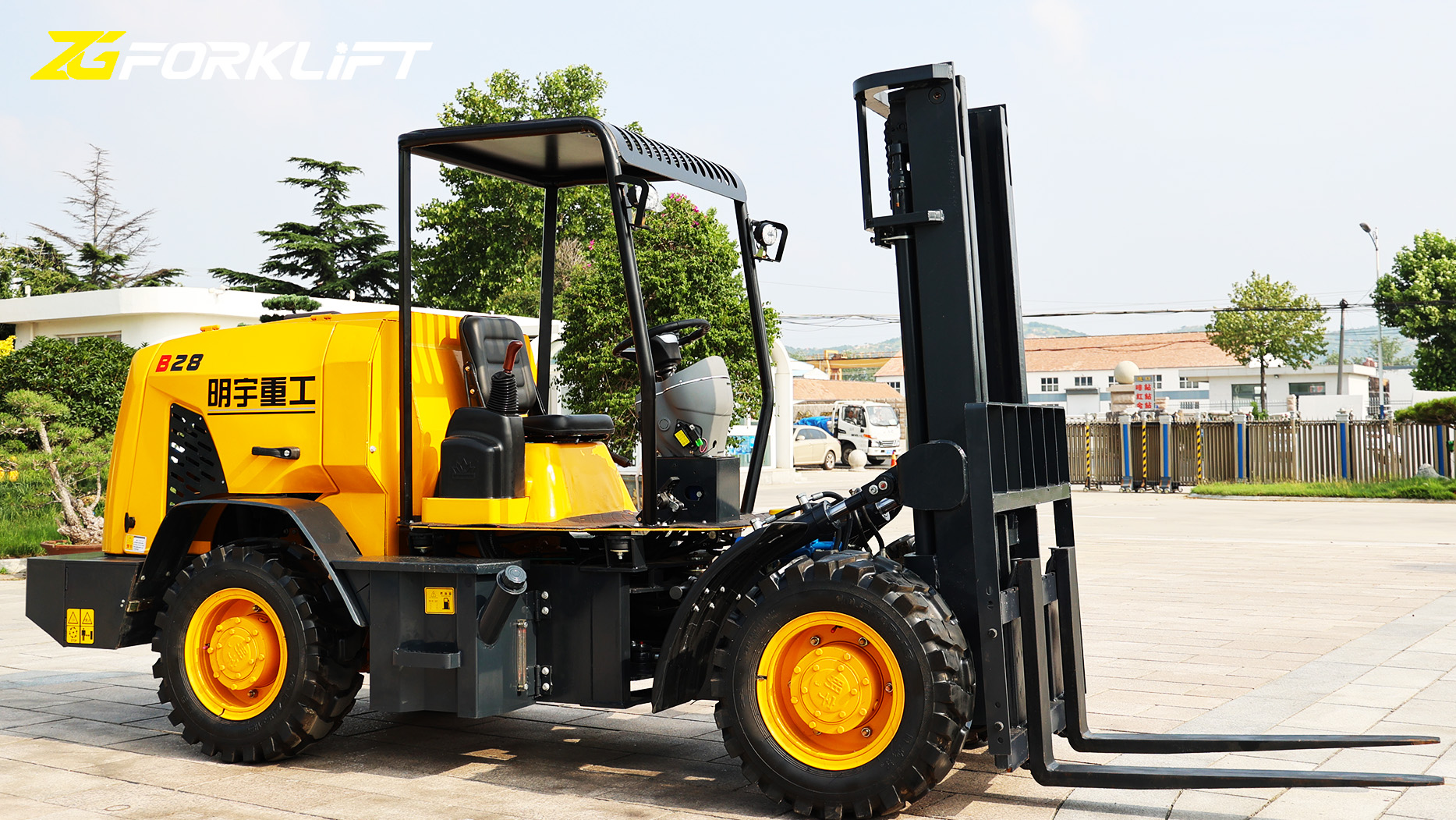A rough terrain forklift truck, also known as an all-terrain forklift, is a specialized material handling vehicle designed to operate effectively in challenging outdoor environments. Unlike conventional forklifts typically used in warehouses and on smooth surfaces, rough terrain forklifts are built to handle uneven ground, inclines, and obstacles.
Key Characteristics:
Robust Construction: These forklifts are built with heavy-duty frames, reinforced components, and durable finishes to withstand the rigors of outdoor operation.
Powerful Engines: They are typically powered by diesel or gasoline engines, providing the necessary power to navigate challenging terrain and lift heavy loads.
All-Wheel Drive: Most rough terrain forklifts feature all-wheel drive systems, ensuring excellent traction and stability on uneven surfaces such as mud, gravel, and sand.
Large Tires: Equipped with large, pneumatic tires that provide superior ground clearance and traction.
High Ground Clearance: Offers increased clearance to navigate over obstacles and uneven terrain.
Enhanced Maneuverability: Designed for excellent maneuverability in tight spaces and around obstacles.
Versatility: Can be equipped with various attachments, such as forks, buckets, and clamps, to handle a wide range of materials.
Applications:
Rough terrain forklifts find widespread application in diverse industries and settings, including:
Construction:
Transporting building materials (bricks, lumber, concrete)
Moving heavy equipment (cranes, excavators)
Loading and unloading trucks on uneven ground
Agriculture:
Moving and stacking hay bales
Transporting livestock feed
Loading and unloading agricultural equipment
Lumberyards:
Handling logs, lumber, and other timber products
Moving materials within the lumberyard
Mining:
Transporting materials within mine sites
Loading and unloading ore and other materials
Landscaping:
Moving and placing landscaping materials (soil, mulch, rocks)
Clearing debris and preparing land for construction
Advantages of Rough Terrain Forklifts:
Versatility: Capable of operating in a wide range of challenging environments.
Power and Performance: Deliver strong performance and the ability to handle heavy loads.
Enhanced Safety: All-wheel drive and large tires provide improved stability and traction, reducing the risk of accidents.
Increased Productivity: Can operate in areas inaccessible to conventional forklifts, improving overall productivity.
Reduced Downtime: Robust construction and durable components minimize downtime for maintenance and repairs.
Disadvantages of Rough Terrain Forklifts:
Higher Cost: Typically more expensive than conventional forklifts due to their specialized design and construction.
Higher Maintenance Costs: May require more frequent maintenance and repairs due to the demanding operating conditions.
Environmental Impact: Diesel and gasoline engines can contribute to air pollution.
Noise and Vibration: Can generate significant noise and vibration, which may be a concern in certain environments.
Safety Considerations:
Operator Training: Proper operator training is crucial to ensure safe operation of rough terrain forklifts. Operators must be trained on safe operating procedures, load stability, and emergency procedures.
Ground Conditions: Always assess ground conditions before operating a rough terrain forklift. Avoid operating on unstable or excessively soft ground.
Load Security: Ensure that all loads are properly secured to prevent them from shifting or falling during transport.
Maintenance: Regular maintenance is essential to ensure the safe and reliable operation of the forklift.
Personal Protective Equipment (PPE): Operators should always wear appropriate PPE, such as safety glasses, gloves, and steel-toed boots.
Future Trends:
Technological Advancements: Ongoing advancements in engine technology, such as the development of cleaner and more fuel-efficient engines, are expected to improve the environmental performance of rough terrain forklifts.
Automation and Telematics: Integration of telematics systems to monitor vehicle performance, track fuel consumption, and improve operational efficiency.
Alternative Power Sources: Exploration of alternative power sources, such as electric and hybrid-electric drive systems, to reduce emissions and improve sustainability.
Enhanced Safety Features: Continued development of advanced safety features, such as automatic stability control systems and collision avoidance systems.
Conclusion:
Rough terrain forklifts are indispensable tools for material handling in challenging outdoor environments. Their robust construction, powerful engines, and exceptional off-road capabilities make them ideal for a wide range of applications. By understanding their unique characteristics, advantages, and limitations, businesses can effectively utilize these versatile machines to improve productivity and efficiency while ensuring the safety of their operators and the environment.
Disclaimer: This article is for informational purposes only and should not be considered professional advice. Always consult with qualified professionals for specific guidance on forklift selection, operation, and maintenance.
Post time:Jan.06.2025



